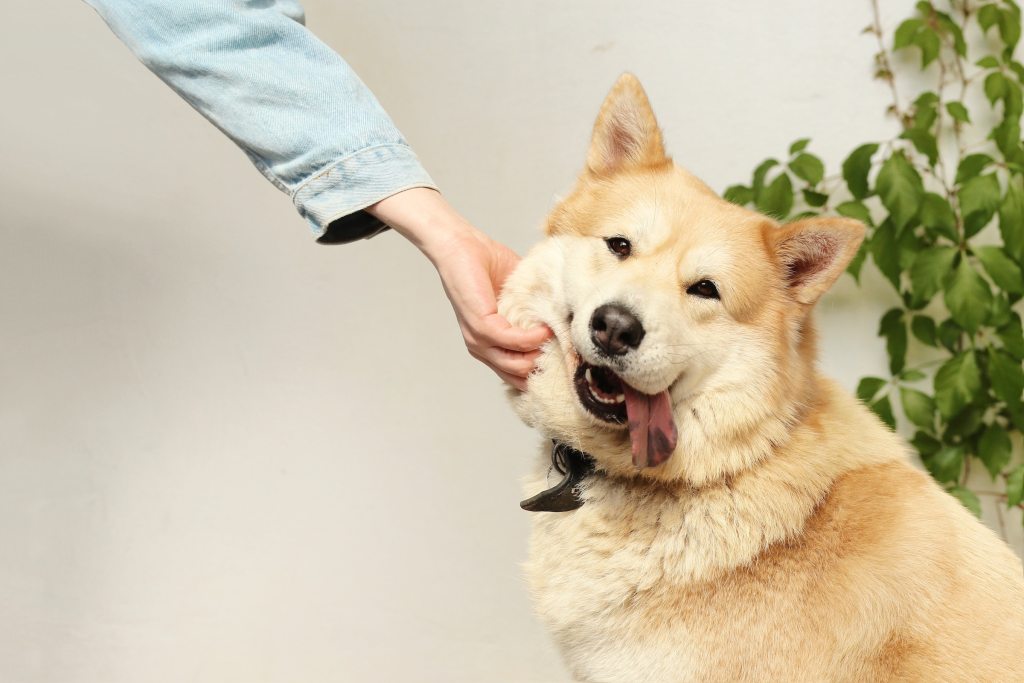If you’ve been wondering “how heavy should my dog be?” you’re certainly not alone. Many pet parents struggle with caring for underweight or overweight dogs, though it’s not always clear how heavy is too heavy for a dog. Fortunately, there are a few signs you can keep an eye out for to ensure your canine companion stays happy and healthy no matter his size.
All in all, your dog’s ideal weight will depend a lot on his breed and genetics. It may be useful to indulge in a DNA test for dogs to help you determine any unknown health risks and breed information, though this is certainly not required to take great care of your pet. All you truly need is the time to research and some patience for the lifestyle changes ahead — if your pup needs them, that is.
How much should my dog weigh?
When it comes to people, a nearly endless number of factors affect one’s weight. With dogs, though, it’s important to consider their breed before all else. Of course, this isn’t always straightforward for dogs who are rescued or mixed breed. In these cases, your veterinarian can help you determine a proper weight for your furry friend.
The American Kennel Club (AKC) has an extensive list of ideal weights for every breed of dog that can help you know what to aim for. It’s also important to note that male dogs are often heavier and larger than females, so being slightly out of range isn’t necessarily a cause for concern — just talk to your vet to be sure.

How do I know if my dog is a healthy weight?
Although you can look for weight-related health changes, these visible symptoms might not be present. That’s what makes canine obesity so dangerous: It’s easy to ignore an extra few pounds when your pet looks otherwise healthy. We can’t always see the consequences of extra weight, though there are many.
These are some of the most common health complications of obesity in dogs:
- High blood pressure
- Kidney disease
- Liver disease
- Arthritis
- Diabetes
- Higher cancer risk
- Urinary tract infections
- Heart failure
The most effective way to ensure your dog is at a healthy weight is to get your pup on the scale. Any vet’s office will have a scale, and you may not even need an appointment to use it. Just let your vet know you’d like to weigh your dog, and the rest will be taken care of. Some pet stores have dog-sized scales, too.

How heavy is too heavy for a dog?
Another way to tell if your dog is too heavy is to look at his body shape. This can be tricky for dogs with a lot of fur, so you may want to feel around with your hands to be extra sure.
According to the AKC, a healthy dog should have a defined waist toward the back of their body. If, when looking down at your pup from above, your dog is more oval-shaped than straight on the sides, he may be overweight. A sagging stomach or waist is another sign of obesity in canines, as is extra fat surrounding the ribs (you’ll have to feel for this with your hands).
Keeping an eye on your dog during exercise can also clue you in that your pup isn’t doing well with the extra weight. He may pant or breathe more heavily, move slower than normal, or walk with a waddle.
All in all, the best way to determine your pet’s health is to weigh him regularly. If you find a problem with your four-legged friend’s number on the scale, your veterinarian can advise you on the best lifestyle changes to reduce your dog’s weight. Swapping out your dog’s diet for a weight-loss product can be helpful, as can more exercise and playtime. No one likes laying off the treats, but it’ll help your dog’s health in the long run.
It may sound overwhelming, but don’t worry, pet parents — you’ve got this! There are so many other dog owners who have been in this spot, and your vet is always on your side, so you’re sure to find as many tips, tricks, and encouraging words as you need.



